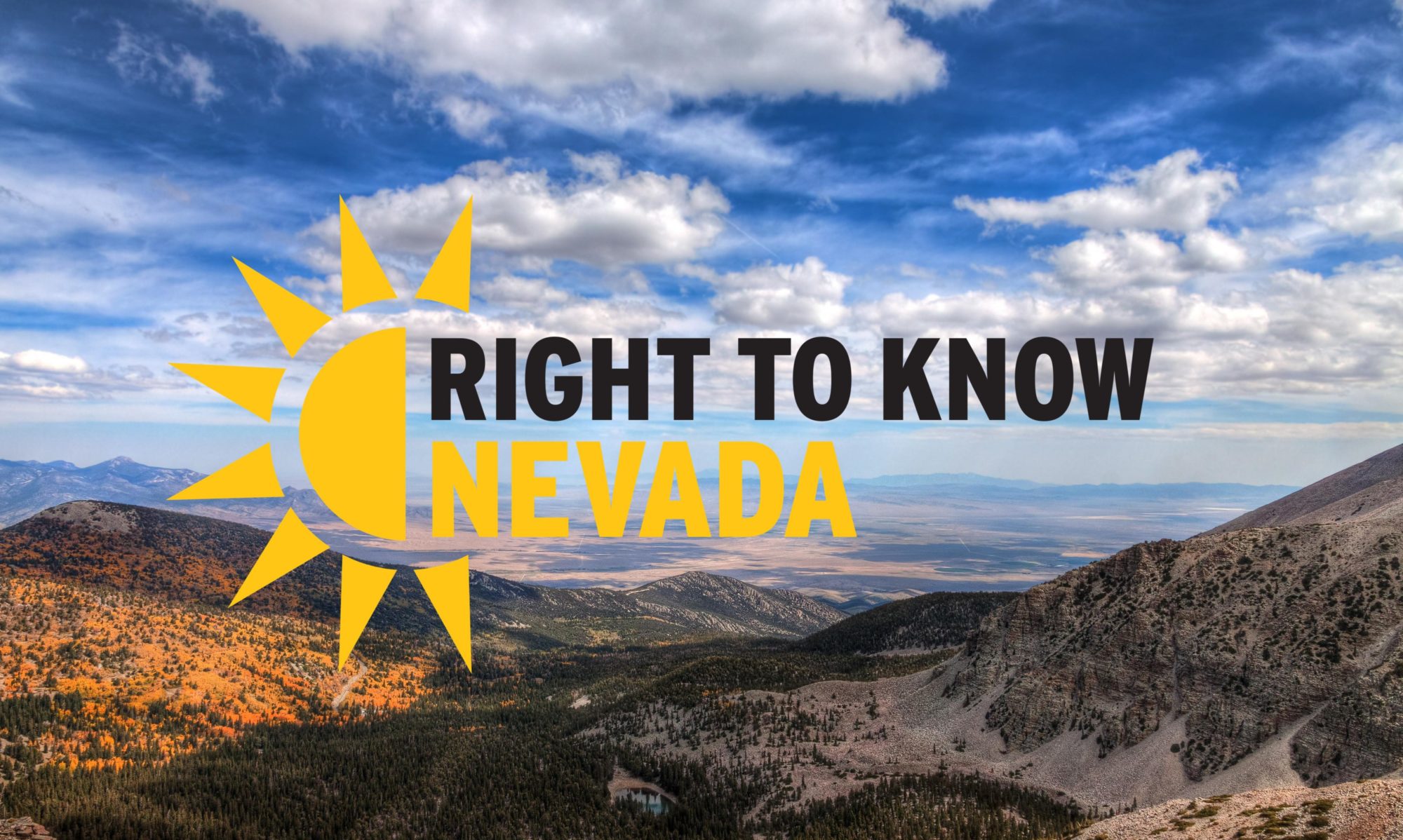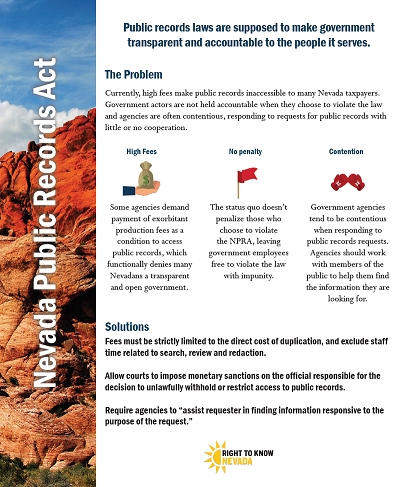“The purpose of this chapter is to foster democratic principles by providing members of the public with access to inspect and copy public books and records to the extent permitted by law; The provisions of this chapter must be construed liberally to carry out this important purpose; Any exemption, exception or balancing of interests which limits or restricts access to public books and records by members of the public must be construed narrowly.” NRS 239.001
“Unless otherwise declared by law to be confidential, all public books and public records of a governmental entity must be open at all times during office hours to inspection by any person, and may be fully copied or an abstract or memorandum may be prepared from those public books and public records.” NRS 239.010
Keep scrolling to learn more

